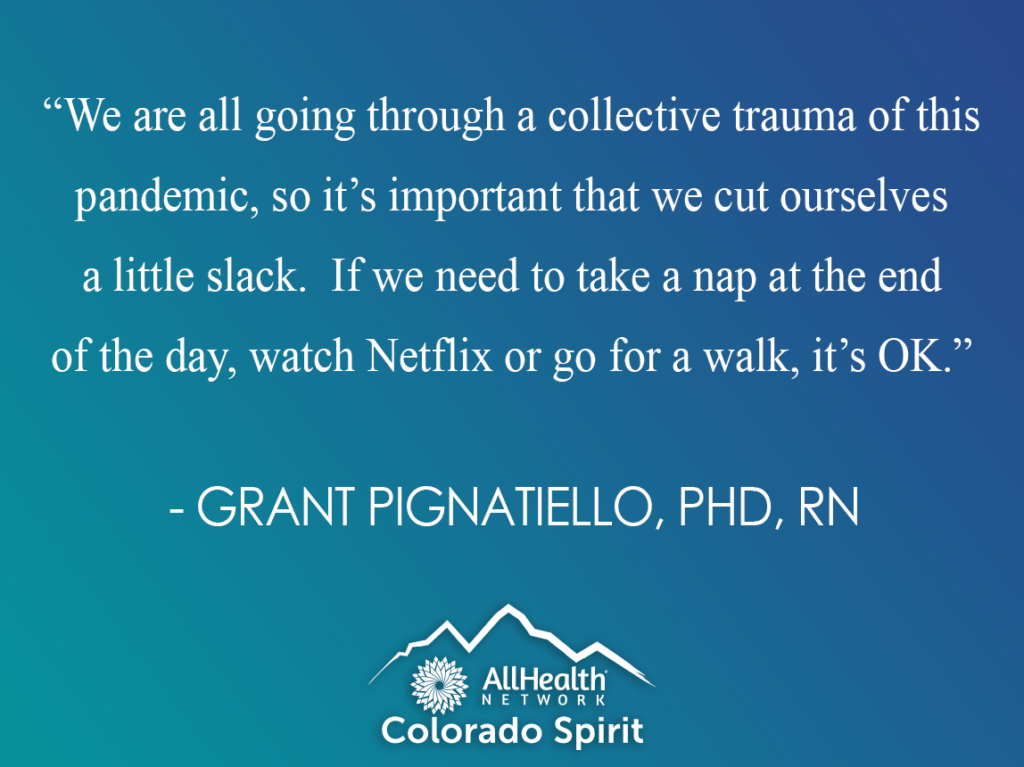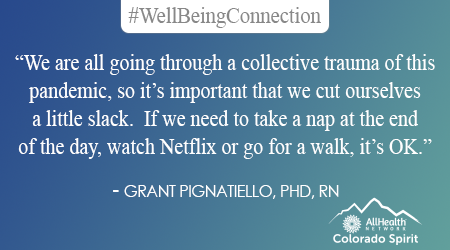Welcome to the Weekly Well-Being Connection! Each week we will share advice from our clinical experts on ways to care for your mental health and well-being throughout COVID-19.
I was in a meeting last week and many of us were sharing that we felt tired, exhausted, overwhelmed, and on edge. Because we are a bunch of behavioral health professionals, we were quick to agree this was a perfectly understandable reaction to living through a pandemic and that we could all benefit from some support, self-care, and downtime. In this discussion though, one of my peers shared the concept of decision fatigue. This really resonated with me on a personal and professional level. Having to make multiple decisions day in and day out can create stress. Add to that the experience of a pandemic, and the fact that decisions that used to seem relatively benign now feel like they have added weight. Plus, we often have to revisit the same stressful decisions again and again as more information about the virus is learned, the situation changes, or others change their plans. Take for example holidays and celebrations. Decisions had to be made about Passover, Easter, Memorial Day, Juneteenth, 4th of July, and so on. Now, many of us are starting to think about what is feasible for Halloween, Thanksgiving, and winter holiday gatherings. The same decisions we made earlier in the year about other celebrations might not feel like an appropriate guide for fall and winter holidays.
Decision Fatigue Can Linger
The decision fatigue many of us are experiencing is not likely to go away immediately, so we wanted to share some suggestions of ways to help lessen or reduce the impact decision fatigue might have on you.
- Stick with routines as much as possible – Routines allow us to go through parts of our day without having to make many decisions and this can give us a welcome break. We know many routines are disrupted right now, and even a few minutes of a routine each day can be a help.
- Share decision making when you can – Making a decision as a group or team can help reduce the burden we feel from decisions. When possible, pull in a family member, friend, or co-worker to talk through a situation and help share the decision load.
- Make decisions when you are rested and well fed – We all feel less strain if we find ways to make decisions when we are in our best possible space.
- If possible, put off making decisions you don’t need to make at the moment. Easier said than done we know, but if a decision can wait, taking a break and revisiting it later when stress levels are lower can be beneficial.
- Find ways to focus on what you can control – Attend to the decision in front of you as opposed to all of the “what ifs”.
- Avoid decision comparison – When every decision feels like a difficult one and it seems everyone around us is making different decisions, fatigue and stress can increase. Comparing our decisions to those others make only adds to this. Find ways to have grace for yourself and others and step back from comparisons.
- Keep taking care of yourself – Keep taking breaks, getting good rest, practicing balanced eating, good movement of your body, and getting outside.
- Focus on ways to release physical tension and manage anxiety – Our bodies hold on to tension, and finding positive ways to release this is imperative for helping lower stress levels. Check out our past posts on the benefits of exercise, tips for managing anxiety and mindfulness for a few ideas. Our Colorado Spirit Team also hosted a 30 minute Facebook live event on October 6, 2020 about mindfulness that might inspire you!
Would speaking to someone help?
To speak with someone in the Colorado Spirit Program about stress related to the pandemic, please call 720-707-6789 or visit our web page at www.allhealthnetwork.org/Colorado-Spirit
For information about other services at AllHealth Network or to get connected with ongoing behavioral health support, please call: 303-730-8858 .
AllHealth Network is continuing to provide service via telehealth or by phone and our Crisis Walk-in Center remains open 24/7. To learn more about what other community mental health centers are doing, please visit The Colorado Behavioral Health Council COVID-19 website .
If you are experiencing a mental health crisis and are in need of immediate assistance, please call the Colorado Crisis Hotline at 1-844-493-TALK (8255) or text TALK to 38255
Resource links
- Medical Xpress – The stress of dealing with COVID-19 is causing decision fatigue. Here’s how to cope.
- USA Today – You’re facing a lot of choices amid the pandemic. Cut yourself slack: It’s called decision fatigue.
- Psychology Today – Six Tips to Reduce COVID Decision Fatigue
- The Sibley Group – Decision Fatigue



